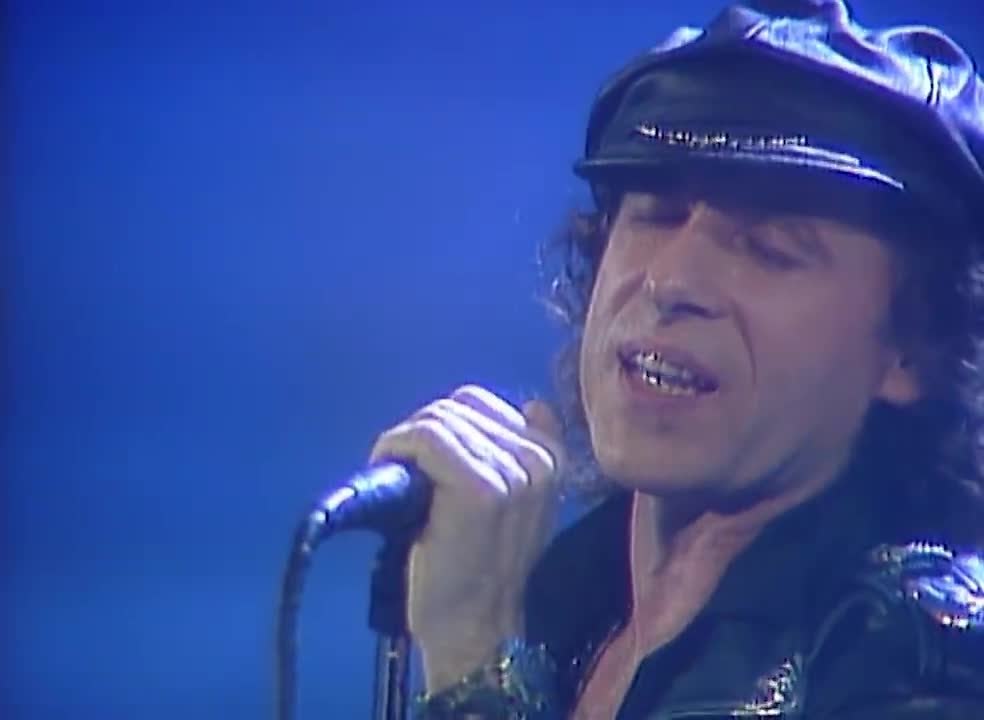On the eve of a new year, amidst the backdrop of a world in transition, Scorpions took to the stage at Peter’s Pop-Show on December 31st, 1991, delivering a performance of their iconic anthem “Wind of Change” that would go down in history.
As the band launched into the opening chords of “Wind of Change,” there was a palpable sense of anticipation in the air. The song, released earlier that year, had already struck a chord with audiences around the globe, its message of hope and optimism resonating with listeners in a time of profound change.
Lead singer Klaus Meine’s soulful vocals soared over the crowd, carrying the emotion of the song with every note. Against the backdrop of a tumultuous world, his words took on new significance, offering a beacon of light in uncertain times.
But it wasn’t just the lyrics that captivated audiences—it was the music itself. The haunting melody, driven by Matthias Jabs’ evocative guitar work, transported listeners on a journey through time and space. With each chord progression, each soaring chorus, “Wind of Change” captured the zeitgeist of a generation on the brink of transformation.
And on that fateful night at Peter’s Pop-Show, Scorpions delivered a performance that was nothing short of electrifying. From the explosive energy of the band to the enthusiastic response of the crowd, every moment was infused with a sense of magic and possibility.
As the final notes of “Wind of Change” echoed through the venue, there was a sense of collective catharsis—a shared moment of reflection and renewal. In that fleeting instant, the world seemed to stand still, united by the power of music and the promise of a better tomorrow.
Nearly three decades later, Scorpions’ performance of “Wind of Change” at Peter’s Pop-Show remains a defining moment in music history. It’s a testament to the enduring power of song to inspire, to uplift, and to remind us of the boundless potential of the human spirit.
So as we look back on that unforgettable night, let us remember the magic of Scorpions’ “Wind of Change” and the timeless message it carries—a message of hope, of unity, and of the enduring power of music to change the world.
